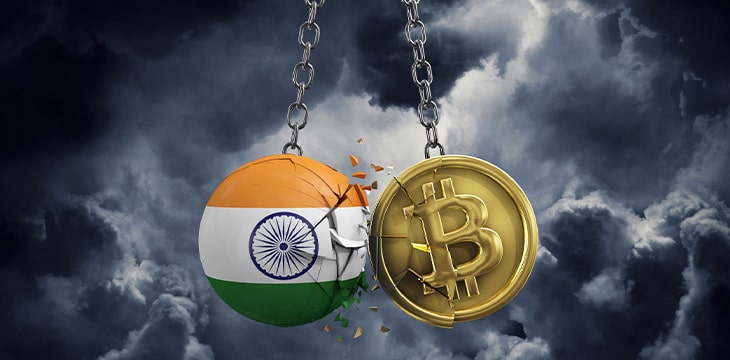|
Getting your Trinity Audio player ready...
|
India’s digital currency exchanges are already facing tough times as volumes dwindle and new taxes kick in, and according to a new report, regulators are now posing fresh concerns. The country’s economic crime agency has reportedly been questioning executives at some of the country’s largest exchanges on allegations of violating foreign exchange laws and aiding crime.
Local business daily Economic Times report revealed that the Directorate of Enforcement (ED) has been seeking details and documents from the exchanges as part of its probe into alleged instances of foreign exchange violations.
ED is a law enforcement agency under the Ministry of Finance that enforces economic laws and fights related crime.
The newspaper reported that the ED has been seeking information under the Foreign Exchange Management Act (FEMA), citing sources with knowledge of the matter. This Act places restrictions on payments made to or received from any person outside India, along with other forex deals. It seeks to promote the orderly development and maintenance of the forex market in India.
One of the people that ED has questioned is Sumit Gupta, the CEO and co-founder of CoinDCX exchange, which recently restricted withdrawals. Sources told the newspaper that Gupta was summoned earlier this month to the agency’s offices in Bengaluru.
However, in an AMA session, Gupta claimed that all that ED was interested in was understanding how the digital currency market works.
“Basically the government right now wants to understand how these businesses are operating. Without first understanding, they can’t do anything, without getting the data, they can’t regulate. Ultimately, this is how the industry can grow. You’d want to be regulated to attract more and more people,” he stated.
Exchanges accused of aiding organized crime
The Indian government will continue to probe the exchanges to unearth any irregularities, an official at the agency says.
“Transaction history, relationship with foreign exchanges, how much money is going out of India – ED is examining every detail on offshore transactions,” the official stated, speaking to the outlet.
“Information has been sought from the exchanges and in certain cases their executives have also joined the probe. The documents are being examined and if need be, they could be called again,” the official added.
This isn’t the first time that the ED has been going after digital currency exchanges. As CoinGeek reported a year ago, the agency went after WazirX for allegedly violating the country’s forex laws. It reportedly tasked the exchange to explain why “withdrawal from crypto wallets is not a violation of the Foreign Exchange Management Act (FEMA).”
ED claimed at the time that WazirX, which is owned by Binance, had facilitated transactions totaling $260 million, which violated FEMA.
WazirX went to court to seek interim relief. In June, the Karnataka High Court allowed a stay on the agency’s summons but ordered the exchange to provide the information the agency had requested.
Aside from violating FEMA, gov’t agencies are also accusing the exchanges of aiding organized crime and terrorism. An official privy to the development stated that in a recent case, the agency had found “instances of use of hawala and crypto in TBML. This e-hawala route using crypto offers an opaque structure making it almost difficult to find both the source and the beneficiary.”
“The hawala (route) is operated by the Dawood Ibrahim gang. So, we see the e-hawala network being used by the D-Gang a lot,” he added.
Dawood Ibrahim is a notorious criminal who is believed to be a mafia gangster, a drug kingpin, and a terrorist. He heads the notorious D-Gang organized crime syndicate and has been on the FBI’s most wanted list for a decade.
But despite the government crackdown, the exchanges say they are unshaken and welcome regulations.
“We receive queries from various government agencies. Our approach has always been that of transparency. Crypto is an early-stage industry with a lot of potential and we continuously engage with all stakeholders,” a spokesperson for CoinSwitch Kuber stated.
CoinDCX also said it would comply with the existing laws and that it would cooperate with regulators whenever called upon.
“As required, we have shared all necessary information to the satisfaction of the department and no subsequent action is pending at our end,” a spokesperson for the exchange said.
Watch: The BSV Global Blockchain Convention panel, Blockchain in Middle East & South Asia
https://www.youtube.com/watch?v=RzSCrXf1Ywc&t=11677s

 02-16-2026
02-16-2026 




